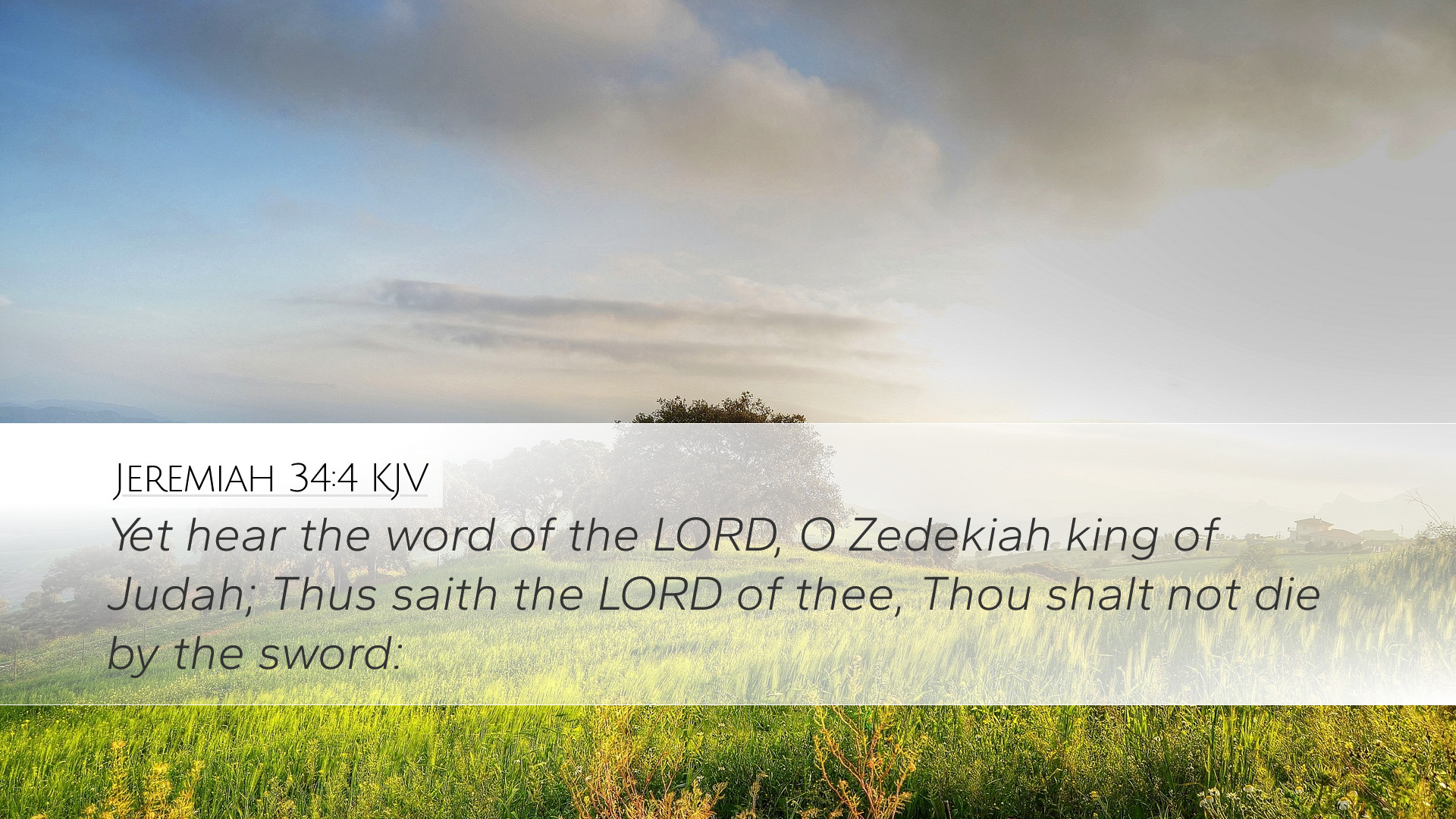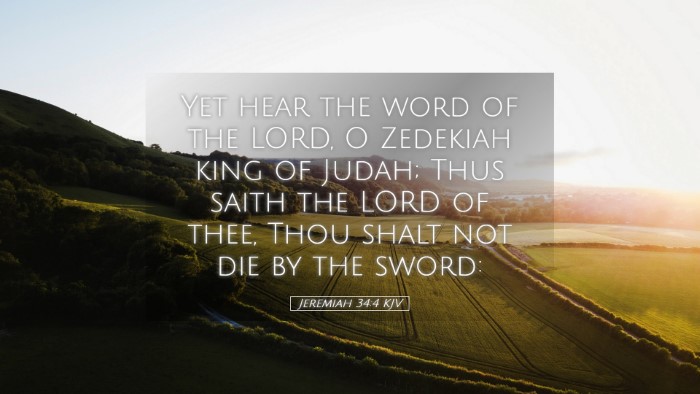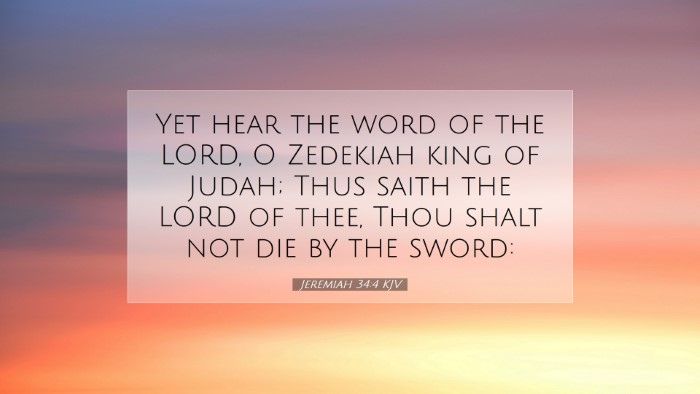Commentary on Jeremiah 34:4
Jeremiah 34:4 states:
"Yet hear the word of the Lord, O Zedekiah king of Judah! Thus says the Lord concerning you: 'You shall not die by the sword.'"
Introduction
This verse is part of a larger narrative concerning the fall of Jerusalem and the impending calamities faced by Zedekiah, the last king of Judah. It is a moment where divine mercy is intertwined with prophetic warning. Through examining public domain commentaries, we can provide profound insights into the theological, historical, and practical implications of this verse.
The Context of Jeremiah 34
To fully grasp Jeremiah 34:4, one must consider its broader context. The chapter speaks to the social, political, and spiritual turmoil in Judah during Zedekiah's reign. God sent Jeremiah, equipped with messages of both judgment and mercy. This particular verse highlights the notion of divine intervention in human affairs, wherein God reassures Zedekiah amidst dire prophecies regarding Jerusalem's fate.
Theological Insights
The commentary from Matthew Henry emphasizes God's sovereignty and mercy. He notes that despite Zedekiah’s failures, God still had a word of comfort for him. It illustrates God's willingness to forgive even the most obstinate sinner if they turn to Him, a theme resonating throughout Scripture.
Albert Barnes adds that the promise made to Zedekiah not to die by the sword serves as a potent reminder of divine providence. This was not merely about physical death but also involved the spiritual dimensions of judgment versus mercy. Barnes points out that the political chaos surrounding Zedekiah is a reflection of his lack of faith and reliance upon God.
Key Takeaways
- Divine Assurance: God’s promise gives a glimpse of hope even in despair.
- The Challenge of Leadership: Zedekiah’s failure to heed divine counsel resulted in tragic consequences for himself and his nation.
- Grace Amidst Judgment: The reassurance to Zedekiah presents the dichotomy of judgment and grace.
Historical Context
In the historical setting of this chapter, Zedekiah reigned during a tumultuous time, amidst the siege by the Babylonians. Adam Clarke emphasizes that the prophecy not only serves to comfort the beleaguered king but also to assert God’s authority over nations and rulers. Zedekiah, often criticized for his indecisiveness and failure to uphold the covenant with God, stands as a stark reminder of the consequences of disobedience.
Leadership Lessons
- Importance of Obedience: Zedekiah's story cautions leaders about the repercussions of ignoring God’s statutes.
- Divine Mandate: Rulers should seek God’s wisdom in their decisions.
- God's Authority: The verse reflects on the sovereignty of God over earthly kingdoms.
Practical Applications
For pastors and theologians, this passage presents several practical applications:
- Encouragement for the Downtrodden: Like Zedekiah, many may feel trapped by circumstances. This promise serves as a reminder of God’s willingness to provide reassurance in times of trouble.
- Call to Repentance: Individuals are encouraged to respond to God's warnings before judgment arrives. The portrayal of Zedekiah is an invitation to humility and acknowledgment of one’s failures before God.
- Emphasizing Hope: The assurance of not dying by the sword can be seen as God’s call to redemption and hope, even when surrounded by darkness.
Conclusion
Jeremiah 34:4 is a profound reminder of God’s sovereignty, mercy, and the necessity of aligning one’s life with His ways. As highlighted by Matthew Henry, Albert Barnes, and Adam Clarke, this verse gives believers hope amidst despair. It serves as both a warning and a comfort, calling us to obedience while reassuring us of divine kindness. In studying this passage, pastors, students, theologians, and Bible scholars alike are encouraged to delve deeply into the heart of God, as portrayed through the prophets, and to apply these insights into their own spiritual and communal lives.


